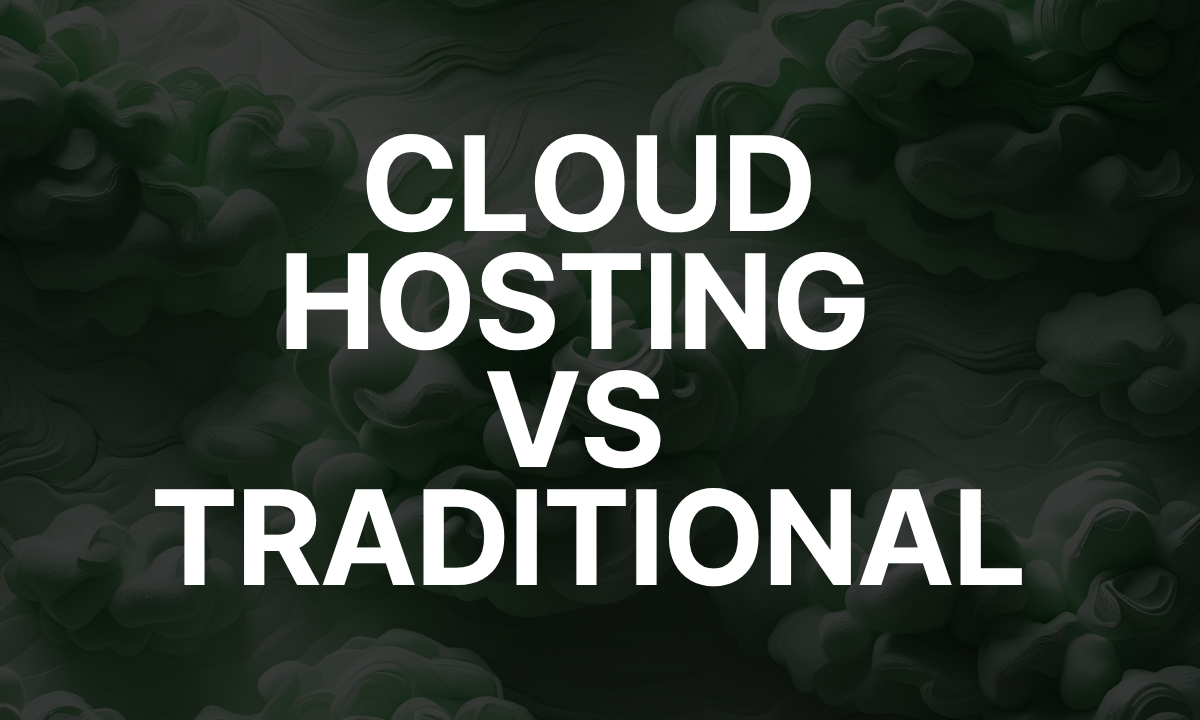Traditional Web Hosting Vs Cloud Providers - How To Pick What’s Best For YOU
Choosing the right web hosting solution can make or break your online presence. You might be running a simple blog or scaling a complex e-commerce site, and the decision between traditional hosting providers and modern cloud platforms like Vercel or Netlify isn’t always straightforward. Having worked with countless businesses on their hosting needs, We’ve seen how these options can dramatically impact performance, cost, and ease of use. Let’s dive into what sets them apart and when you might prefer one over the other.
First off, traditional web hosting companies, like those offering shared, VPS, or dedicated servers, have been around for decades. They’re the old guard of the internet, providing reliable infrastructure where you essentially rent space on a physical or virtual server. For many small businesses and personal sites, this has been a solid choice for decades because it’s straightforward and often more affordable upfront. But as websites evolve, so do their demands.
On the flip side, cloud innovators like Vercel and Netlify represent the future of hosting with their serverless architectures and seamless integration with modern web tools. Vercel, for instance, is a favorite among developers building with frameworks like Next.js, offering lightning-fast deployments and automatic scaling. Netlify shines in the Jamstack world, making it easy to host static sites with dynamic capabilities through services like edge functions and global CDNs. These hosting providers also offer something traditional hosts can’t. Free hosting. Both Vercel, Netlify, and even Github make it easy to host static sites with generous free hosting plans. For low traffic sites, hobbies, or development testing these hosting providers can be a great alternative to a traditional web host like GoDaddy or Bluehost and can also be a reason to choose building your site in a static framework as opposed to something that requires a database. (For a detailed guide on website frameworks, check out our “choosing the right framework to build your site guide)
One of the biggest differences lies in scalability. Traditional hosting can feel clunky when traffic spikes; you might need to upgrade your plan or server manually, which isn’t ideal during peak times like product launches or viral content. Cloud platforms, however, scale automatically. Vercel and Netlify handle surges in traffic without you lifting a finger, ensuring your site stays up and responsive. This is a game-changer for e-commerce sites or apps with variable loads.
Cost is another key factor. With traditional hosts, you pay a flat fee based on resources, which can lead to overpaying for unused capacity or underpaying and facing performance issues. Cloud services often operate on a pay-as-you-go model, meaning you only pay for what you use. This can save money for sporadic traffic but might add up for consistently high-traffic sites. From my experience, startups love this flexibility, while established businesses sometimes stick with traditional hosting for predictable budgeting.
Ease of use is where cloud platforms really pull ahead. Deploying a site with Vercel or Netlify can be as simple as connecting a Git repository—changes go live with a push, and built-in CI/CD pipelines handle the rest. Traditional hosting often requires more hands-on management, like setting up databases or configuring servers, which can be a barrier for non-technical users. That said, for complex, database-driven applications, traditional hosts might still offer more robust options out of the box.
Use cases play a huge role in this decision. If you’re building a static site or a Jamstack application, Netlify’s global edge network and serverless functions are hard to beat for speed and security. Vercel is perfect for dynamic sites with server-side rendering. On the other hand, traditional hosting excels in scenarios requiring persistent data storage, like forums or custom CMS setups, where the familiarity and control are advantageous.
Ultimately, the choice boils down to your specific needs. Cloud platforms offer innovation and efficiency for modern web projects, while traditional hosting provides reliability and control for more established setups. Whichever you choose, understanding these differences will help you make an informed decision that supports your goals. If you’re unsure where to start, consulting with experts can guide you to the best fit for your project.
Final Thoughts
The web hosting world is evolving, and staying informed can give you a real edge, in cost savings and in performance! Whether you’re drawn to the simplicity of cloud services or the dependability of traditional hosts, the right choice will enhance your site’s performance and user experience. Have more questions or want to explore which hosting options are best for your projects goals? Learn more about our website support services and drop us a line!
